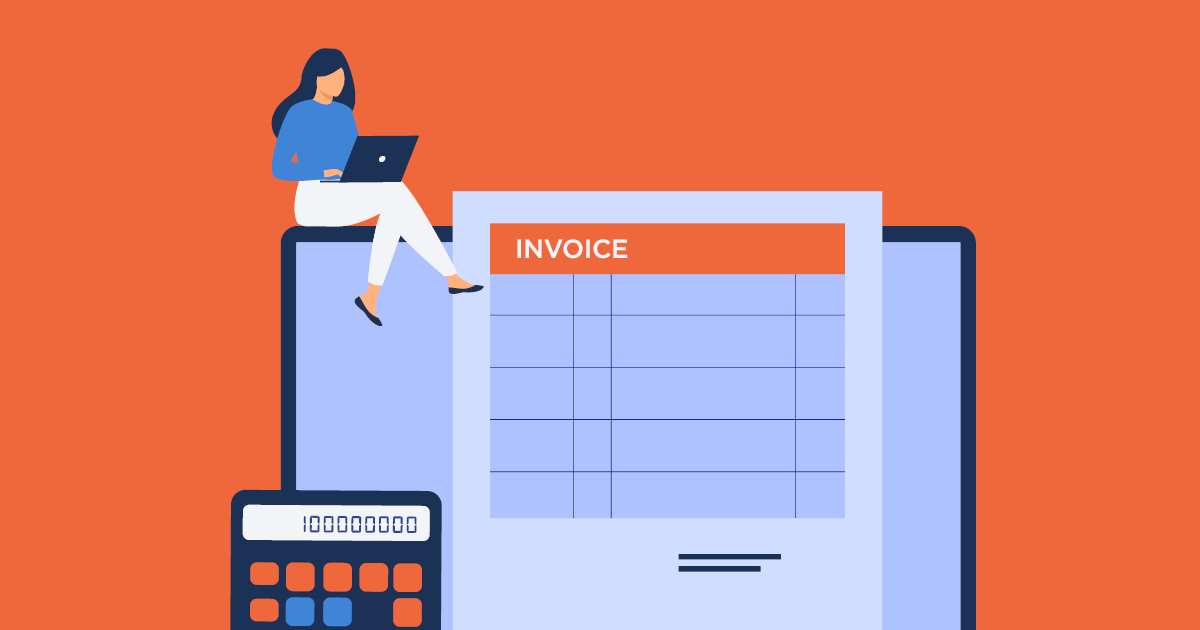It's no secret that the economy isn't in the best shape. In fact, it may be heading for another recession. If your business is unprepared for this, you're going to be in for a rough ride.
In these difficult times, it is more important than ever to make sure that your credit control procedures are watertight. Failing to do so could mean that your business starts to struggle financially.
In this blog post, we will give you some tips on how to prepare for the recession and maintain good credit control during these tough times.
What is credit control?
Credit control is the process of managing credit risk within a business. It involves setting credit limits, monitoring customer creditworthiness, and taking action to mitigate any credit risks.
Having a good credit control system in place is essential for any business, but it is especially important during an economic downturn.
During a recession, businesses are more likely to experience late payments, defaults, and bad debts. This can have a serious impact on their cash flow and profitability.
That’s why it’s so important to have strong credit control procedures in place. By doing so, you can minimize the risk of financial problems arising within your business.
Why is credit control important?
Credit control is important because it helps businesses to avoid the problems caused by late payments. These problems can include cash flow issues, bad debt, and even insolvency.
By implementing effective credit control measures, businesses can protect themselves from these risks and ensure that they remain solvent during an economic downturn.
By having effective credit control procedures in place, businesses can avoid extending too much credit to customers who are unable or unwilling to pay.
This, in turn, helps businesses to protect their cash flow and profitability.
Good credit control is particularly important in light of the current late payment crisis.
According to the latest figures from Bacs, the average payment time for invoices has risen to a record high of 30.55 days.
This is bad news for businesses, as late payments can have a serious impact on cash flow.
In the UK alone, SMEs are owed £50 billion in late payments, and the situation is only getting worse.
Even without the pressures of a recession, late payments can force businesses into insolvency. Around 44000 UK businesses go under every year, with late payments being a major contributing factor.
During an economic downturn, businesses need to be even more vigilant about credit control. This is because late payments are likely to increase, as customers find it harder to pay their debts.
How does credit control work?
Credit control works by setting up systems and processes to make sure that customers pay their invoices on time.
This can involve sending out regular reminders, using software to automate the process, or even employing a credit control team.
Whatever system you use, the goal is the same: to get paid on time, and keep cash flowing into your business.
What are the benefits of credit control?
There are many benefits of having good credit control procedures in place. These include:
- Reduced financial risks: by monitoring your customers’ creditworthiness and taking action to mitigate any credit risks, you can reduce the chances of bad debts and late payments.
- Improved cash flow: good credit control helps to ensure that you are paid on time, which can improve your overall cash flow position. Cash flow is crucial for businesses of all sizes, and can be the difference between success and failure.
- Enhanced relationships with customers: By proactively managing your customers’ credit risks, you can help to build and maintain strong relationships. This is because you are showing that you are interested in their financial well-being, and are taking steps to protect them from potentially difficult situations.
- Increased profits: by reducing the amount of bad debt and late payments, you can increase your profits. This is because you will be able to keep more of the money that you are owed, and won’t have to write off unpaid invoices.
Overall, credit control is a vital part of running a business, and is even more important in an economic downturn. By taking steps to manage your customers’ credit risks, you can protect your business from financial difficulties, and increase your profits.
What are some effective credit control measures?
There are a number of measures you can take to improve your credit control procedures, including:
Carrying out regular credit checks on new and existing customers
Credit checking is an essential part of credit control, and can help you to avoid extending credit to customers who are unlikely to pay.
Most companies credit check customers during the onboarding process, but it’s also important to carry out regular checks on existing customers, as their financial situation may have changed since they were first credit checked.
Chaser's award-winning credit control platform offers a credit checking facility, which is quick and easy to use, and can help you to keep on top of your customers' creditworthiness.
Setting clear payment terms and conditions
Clear payment terms and conditions are essential for effective credit control. Your terms should be communicated to customers in a clear and concise way, and should include information on when invoices are due, any late payment charges that may apply, and the methods of payment that you accept.
If you don't already have a credit control policy in place, now is the time to create one. By doing so, you can help to protect your business from bad debt and ensure that you're able to continue operating effectively during an economic downturn.
To help out even more, we've created a credit control template that you can use to create your own policy. Simply download the template, customise it to suit your business, and start implementing it with your customers today.
Enforcing your payment terms and conditions
Once you have set clear payment terms and conditions, it is important to enforce them. This means chasing up customers who have not paid on time, and applying late payment charges where appropriate.
This is a carrot and stick method. The late payment charges act as a deterrent for customers who might be tempted to delay payment.
Under UK law, you are entitled to charge interest on late invoices, as well as a fixed sum to cover the administrative costs of chasing the payment.
Offering early payment discounts
Early payment discounts can be a powerful incentive for customers to pay their invoices promptly. By offering a discount for early payment, you can encourage your customers to settle their invoices within a shorter time frame.
This can be particularly effective if you offer a significant discount, such as 20% off the invoice value for payment within 14 days.
This is the carrot part of the carrot and stick method for credit control. In addition to leveraging late payment charges, you also give your customers an incentive to pay on time.
Of course, you need to ensure that you have the cash flow to cover any early payments that you may receive.
However, if you are confident in your ability to manage your cash flow, then offering early payment discounts can be a great way to improve your credit control.
Reviewing your credit terms
In an economic downturn, it may be necessary to review your credit terms in order to protect your business from bad debt. You may need to shorten your payment terms, or increase the amount of deposit you require from customers.
You should also consider carefully who you extend credit to. In an uncertain economic climate, it may be wiser to only extend credit to customers who have a good history of paying on time.
Monitoring customer payment patterns and taking action if there are any signs of financial difficulty
Keeping on top of your customer's payment behavior is crucial in an economic downturn. If you see any signs that a customer may be struggling to pay their invoices, take action immediately.
This could include calling the customer to discuss their payment history, or sending them a reminder letter.
Chaser's hub collects all of your customer's payment information in one place, so you can easily keep track of who is up to date with their payments and who isn't.
Outsourcing your credit control function to a specialist agency
While paying someone else to manage your accounts receivables during a recession might sound counterintuitive, it could actually be the best way to protect your business.
A good credit control agency will have experience chasing payments during an economic downturn, and they'll also free up your time so you can focus on other areas of your business.
Chaser's professional and experienced team can help you get paid on time, every time. If you're thinking about outsourcing your credit control function, get in touch with us today. We'd be happy to chat about how we could help you.
Use automation to keep track of payments and chase up late ones
One of the primary issues with effective credit control is its associated cost - it can be expensive to employ a full-time in-house team, and many small businesses simply can't afford to do this.
Automation is key when it comes to reducing the cost of credit control. There are now a number of software platforms available that can help you keep track of payments and chase up late ones.
Many of these platforms offer free trials, so it's definitely worth investigating this option before making a decision about whether or not to outsource your credit control function.
Chaser is a market-leading credit control software platform and can automate a lot of the tasks associated with credit control. This includes sending automatic payment reminders and late payment interest charges, as well as generating customizable reports.
You can try Chaser for free with our 14-day trial and learn how it can help your business get paid on time, every time. Sign up now and start recovering your outstanding debt today.
Take action quickly when payments are overdue
Perhaps the most important step in implementing effective credit control is being proactive in your follow-up when payments are overdue. The sooner you take action, the more likely you are to get paid.
If a payment is only a few days late, sending a friendly reminder email or making a phone call can often prompt the customer to make the payment. If the debt is older, you may need to send a formal letter of demand.
You can use Chaser’s customisable email templates and automated reminders to save time on your follow-up. This way, you can focus on other tasks while still getting results.
Taking these steps will help you to protect your business from the effects of late payments and give you a better chance of weathering an economic downturn.
Let Chaser help you thrive, no matter the economic conditions
With Chaser's help, you can get paid faster and focus on what's important - running your business. Our award-winning platform has helped thousands of businesses get paid on time, every time.
Using cutting-edge automation, Chaser helps you stay on top of payments and chase late invoices with ease. We also provide valuable insights and recommendations so you can get paid even faster.
Get started with a free 14-day trial of Chaser today and see how we can help you! Just enter your email address below to get started.




